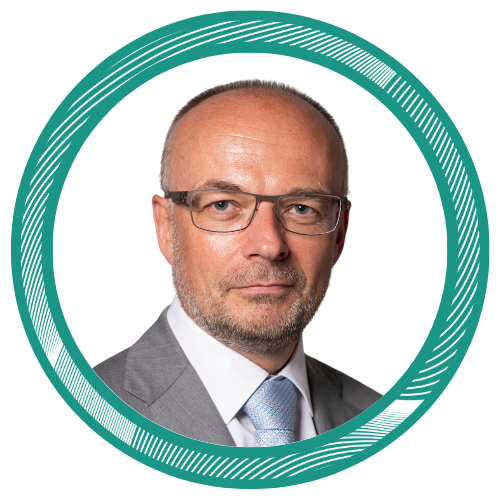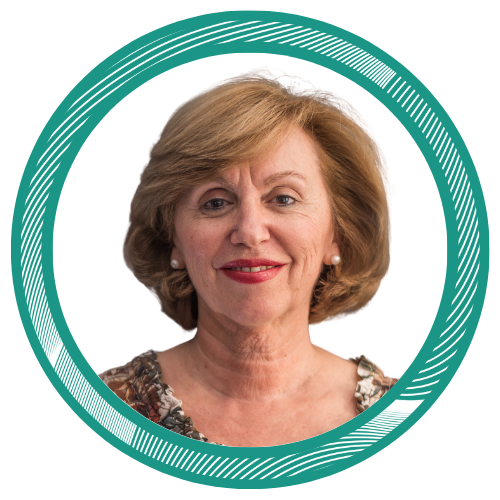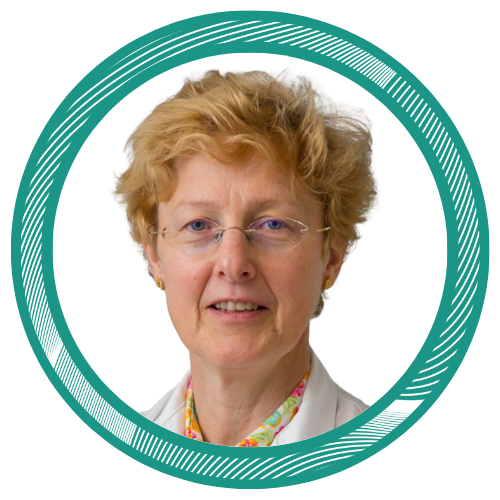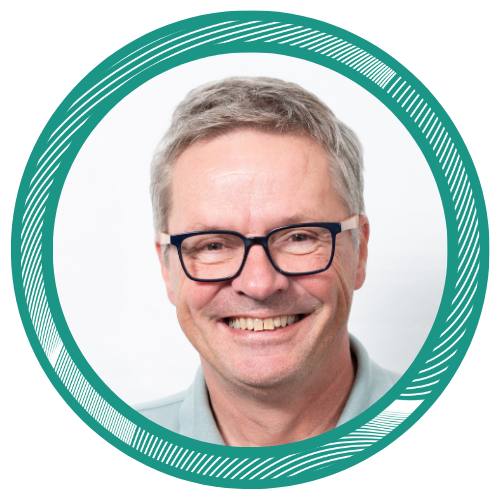Welcome message
20 years ago, EASL organised its first meeting focused on NAFLD. In 2025, we are thrilled to meet in Estoril for the EASL SLD Summit 2025, which will reflect the exciting developments over the past two decades.
Steatotic Liver Disease is one of the most significant challenges the hepatology community faces globally, with its impact continuously growing. At the same time, efforts by stakeholders worldwide are also intensifying to curb this pandemic, leading to rapid advances in the field. Since the landmark nomenclature change last year, cardiometabolic risk factors and alcohol have been recognised as primary drivers, opening numerous new avenues for research and innovation, and new hope for people living with SLD. But what is the best way to keep up with all this innovation? There is just one answer: join us at the EASL SLD Summit 2025!
The EASL SLD Summit 2025 is thoughtfully divided into three sections to provide a comprehensive approach to the various aspects of steatotic liver disease, combining ready-to-use clinical education with an in-depth review of the latest updates in the field.
The summit will kick off with a focused session on “The trajectory of people living with steatotic liver disease: a clinical update and consensus,” where you will have the opportunity to shape clinical practice in the field. This session will feature short, focused talks covering all practical aspects, from prevention to the management of end-stage disease, structured along the patient trajectory and involving all relevant stakeholders. With your active contribution to the discussion, the summit will generate a consensus document for the holistic practical management of a person living with SLD, including in the paediatric setting.
The first day of the summit will also host the “Endpoint conference on ALD and MetALD in Phase 2 and 3 clinical trials”. This conference is dedicated to enhancing the design, execution, and evaluation of clinical trials for ALD and MetALD, to improve patient outcomes and treatment strategies. Over three sessions we will cover crucial aspects of designing Phase 1, Phase 2, and Phase 3 clinical trials in the spectrum from fibrosis to decompensated cirrhosis and discuss invasive versus non-invasive tests as endpoints.
Understanding the interplay between alcohol consumption and cardiometabolic risk factors is vital in ALD and MetALD. We will discuss best practices for assessing cardiovascular risk factors and measuring alcohol consumption in clinical trials, as well as monitoring changes in these factors and liver steatosis throughout the trial period.
On 24 and 25 January, the EASL SLD Summit 2025 core programme will then tackle the most recent innovations and insights in MASLD, MetALD and ALD, bridging advanced high-tech research methodology with clinical implications, basic research insights with real patients’ experiences, and complex issues of clinical trials with issues of disease awareness and changing policies.
Faithful to EASL’s mission, we bring together young researchers and experienced seniors to debate on scientific issues, clinicians and Key Opinion Leaders to implement new knowledge in daily practice, a multidisciplinary group of healthcare providers across specialties to tackle a multisystem disease, and medical professionals and patients to understand the true needs of those living with SLD and to change policies accordingly. We count on you, to bring your original science by submitting your abstracts, that can be accepted either as oral or poster presentations and which will be given great visibility.
If you want to recharge your SLD research batteries, increase the quality level of your clinical SLD practice, or simply fuel your knowledge with the most cutting-edge information: explore the EASL SLD Summit 2025’s exciting programme and join us in Estoril for the world’s leading scientific and educational event on Steatotic Liver Disease!
The EASL SLD Summit organisers,
Helena Cortez-Pinto, Christophe Moreno, Gema Frühbeck, Bart Staels, Sven Francque and Aleksander Krag
The trajectory of people living with Steatotic Liver Disease: a clinical update and consensus - Organising Committee

Sven Francque
Belgium
Read the bio
Prof. Dr. Sven Francque is currently Chairman of the Department of Gastroenterology and Hepatology of the University Hospital Antwerp and Full Professor of Medicine at the Faculty of Medicine and Health Sciences of the University of Antwerp in Belgium. He has a longstanding interest and expertise in nonalcoholic fatty liver disease and conducted basic research focusing on the vascular changes in steatosis and their contribution to disease progression. His research unit continues to study pathophysiological mechanisms of NASH. He also conducts clinical research, and his unit is a partner in several research consortia supported by the European Commission. He and his unit participate in most of the clinical trials in the field, and he is a scientific committee member involved in the design of several phase 2 and one of the current phase 3 trials in NAFLD. He is a senior clinical researcher for the Research Fund of the Flemish government. He is board member of several scientific societies and currently also scientific coordinator of the Belgian week of Gastroenterology. Prof. Dr. Francque obtained his MD at the University of Antwerp, Belgium, in 1994 and was subsequently trained in internal medicine and in gastroenterology and hepatology at the Antwerp University Hospital, Belgium and at the Department of Hepatology of the Beaujon hospital, Clichy, France.
Endpoint Conference on ALD - Organising Committee


Aleksander Krag
Denmark
Read the bio
Aleksander Krag, MD, PhD, MBA, Professor and Head of Hepatology, Director of Odense Liver Research Centre at Odense University Hospital. Chair of Health Sciences at the Danish Institute of Advanced Studies (DIAS) at University of Southern Denmark, Associate editor at Danish Medical Journal and Editor in Chief at Medicin.dk.
My passion is research with main focus on liver fibrosis, complications to cirrhosis, alcoholic liver disease and microbiome. I’m involved in and hold leader positions in a number of large research collaborations in liver diseases, including being director of FLASH: Fibrosis Fatty Liver and Steatohepatitis Research Centre Odense, Coordinator in the H2020 project GALAXY: Gut and Liver Axis in Alcoholic Liver Fibrosis and partner in the H2020 projects MicrobPredict, LiverScreen and The International Human Microbiome Action and PI in the Center for Functional Genomics and Tissue Plasticity. I’m involved in several international organisational activities including being member of the Scientific Committee of the Baveno group and serve as UEG representative in the European Medicines Agency. My research output and metrics are available at PubMed, Scopus, ORCID, Publons and Google.
EASL SLD Summit 2025 - Organising Committee


Helena Cortez-Pinto
Portugal
Read the bio
Helena Cortez-Pinto (MD, PhD) is a specialist in Gastroenterology, dedicated predominantly to Hepatology, mainly steatotic liver disease, nutrition, and public health. She is full professor in Faculdade de Medicina, Universidade de Lisboa (FMUL). Director of Clínica Universitária de Gastrenterologia, FMUL, and Coordinator of the Hepatology Unit, of Unidade Local de Saúde Santa Maria, Lisboa, Portugal. She is Director of the Scientific Council of FMUL. Past- President of United European Gastroenterology (UEG) (2022-2023). Senior editor of Seminars of Liver disease and member of the “Editorial Board” of Journal of Hepatology. Published around two hundred articles in indexed Journals, including JAMA, Gastroenterology, Hepatology, Journal of Hepatology and Liver International, with an h-index of 54.


Christophe Moreno
Belgium
Read the bio
Christophe Moreno is Professor and Chairman of the Department of Gastroenterology, Hepatopancreatology and Digestive Oncology in CUB Hôpital Erasme, Université Libre de Bruxelles, in Belgium since 2023. He completed his medical training in the Faculty of Medicine of the Université Libre de Bruxelles and achieved his PhD in the Laboratory of Experimental Gastroenterology (Université Libre de Bruxelles) in 2007. He was graduated from Université Paris-Sud with summa cum laude in June 2007 in Réanimation hépatique. He is former president of the Belgian Association for the study of the Liver, member of European Association for the Study of the Liver and the American Association for the Study of Liver disease. He is Associate editor for UEG Journal since 2019, and was Associate editor for Journal of Hepatology between 2014 and 2019.
Christophe Moreno has published more than 120 articles in prominent journals including the New England Journal of Medicine, JAMA, Gastroenterology, Hepatology and Journal of Hepatology. His main research interests are focused on alcohol-related liver disease, advanced cirrhosis and Liver Transplantation.


Gema Frühbeck
Spain
Read the bio
Prof. Gema Frühbeck (RNutr, MD, PhD) combines everyday work in the clinical setting as Co-Director of the Obesity Area of the Clínica Universidad de Navarra (Pamplona, Spain), with basic research as Head of the Metabolic Research Laboratory of the University of Navarra and Project Leader of the CIBEROBN (Centre of Excellence Network in Obesity and Nutrition of the Spanish Institute of Health). The efforts of her group are focused on studying the impact of adiposity on the development of comorbidities. Frühbeck’s group has taken the step forward of using body composition measurements routinely in the clinical assessment of patients in order to analyse the relevance of body fat -beyond BMI- in comorbidity development. In 1997 with a fellowship grant of The Royal Society Frühbeck performed a postdoctoral stay in Prof. Andrew Prentice’s Energy Group at the MRC Dunn Clinical Nutrition Centre in Cambridge, UK. In the last years Prof. Frühbeck has been recipient of numerous awards and honours among others: The Nutrition Society’s Silver Medal, UK (2000), “Doctor Laguna Serrano” Prize, Royal National Academy of Medicine, Madrid (2005), “Sir David Cuthbertson Medal” of the Nutrition Society, UK (2005), “AMA Prize” on Nutrition and Health of the Medical Association (2007), Pfizer Prize for a Professional Career in the field of Neuroendocrinology (2009), Commendation of her book “Obesity: Science to Practice” published by Wiley-Blackwell in the British Medical Association Book Awards (2010), Lilly Distinguished Career Award in Endocrinology & Nutrition (2011), Albert Struyvenberg Medal of the European Society for Clinical Investigation (2013) and British Medical Association Award in Medical Leadership (2017) Group Trajectory Award of the Spanish Society of Endocrinology & Nutrition (2017), NAOS Obesity Strategy Accesit in the hospital setting (2020), Danone Prize (2022). Prof. Frühbeck has served as Secretary, President-Elect, President and Co-Chair of the Scientific Advisory Board of the European Association for the Study of Obesity (EASO).


Bart Staels
France
Read the bio
Bart Staels, PhD., is director of the Inserm Unit UMR1011 with laboratories at the Lille Pasteur Institute and Medical Faculty campus.
After his doctorate at the Univ.Leuven, Belgium, he completed his training at the UCSF, San Francisco and RPR, Paris. He is Senior Member of the Institut Universitaire de France, co-founder and board member of the European Genomic Institute for Diabetes (EGID, Lille), member of the French National Academy of Pharmacy and the Belgian Royal Academy of Medicine, and past-president of the French Atherosclerosis Society.
Awards: the EAS Young Investigator Award, the CNRS Bronze Medal, the Lifetime Achievement Award of the British Atherosclerosis Society, the “Barré” prize from the Faculté de Pharmacie of Montreal (2007), the “JP Binet” prize from the Fondation pour la Recherche Médicale (2011), the “Distinguished Leader in Insulin Resistance” award (2012), the ICBL Laurens van Deenen award (2017) and the European Atherosclerosis Society 2024 “Anitschkow Prize”.
B.Staels’ research covers the fields of obesity, diabetes, hepatic and cardiovascular diseases focussing on molecular pharmacology of these cardio-metabolic diseases. He particularly studies the role of nuclear receptors in the control of inflammation and lipid and glucose homeostasis as well as the transcriptional mechanisms involved.
B.Staels has published >900 articles, abstracts and book chapters (Google h-index: 186; >136000 citations). He received the ISI citations award and is a 2018, 2022 and 2023 Web-of-Science Highly Cited Researcher.

